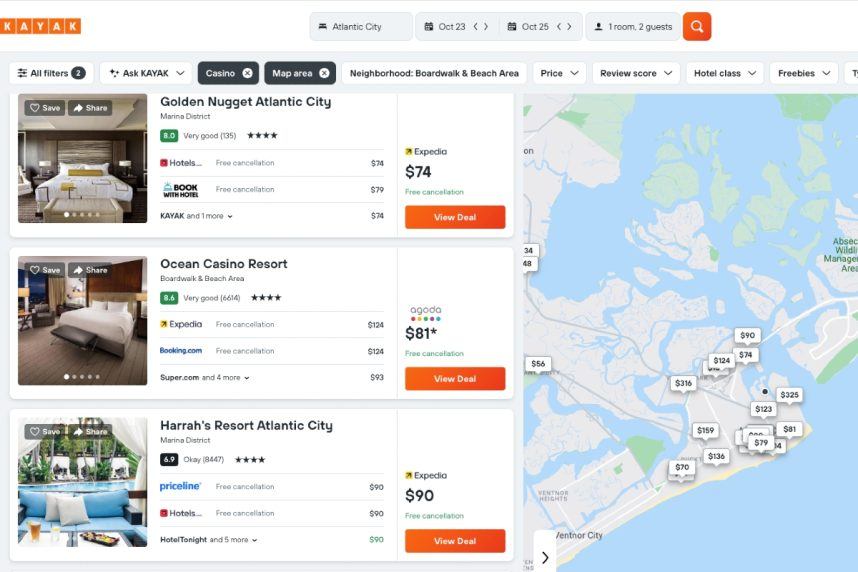Posted on: October 2, 2024, 12:31h.
Last updated on: October 2, 2024, 12:41h.
Las Vegas and Atlantic City casino hotels continue to defend their hotel room pricing strategy amidst two proposed class-action lawsuits alleging overcharging of consumers.

Federal courts have rejected claims that hotels are participating in price-fixing by sharing real-time occupancy data with a third party, which then advises hotels on room rates. This practice is alleged to violate federal antitrust laws, including the Sherman Act, that prohibit companies from conspiring to monopolize any market, including hotel rooms.
In a recent ruling, a New Jersey US District Court Judge dismissed an appeal against Atlantic City casinos for alleged price gouging, citing lack of evidence to support the claims. The lawsuit was dismissed with prejudice, preventing any future filings or appeals.
Nevada Case Continues
A similar class-action lawsuit in Nevada accusing Las Vegas Strip casinos of price-fixing was dismissed by a federal district court judge, but the case remains open for appeal. The plaintiffs have taken the matter to the 9th US Circuit Court of Appeals, although with a lower chance of success following the Atlantic City ruling.
Both lawsuits argue that casinos are misleading customers into paying higher rates by utilizing a third-party software provider, Cendyn, to suggest room rates based on occupancy and demand data from rival hotels.
Cendyn’s “Rainmaker” software analyzes a hotel’s occupancy and proprietary data to recommend optimal room rates based on supply and demand. Casinos are said to adopt the software’s recommendations most of the time, according to the complaints.
Defendants in the Nevada case include MGM Resorts, Caesars Entertainment, Wynn Resorts, Treasure Island, and Blackstone Group, while the New Jersey case named Caesars, Hard Rock, and Borgata as defendants.
Judge’s Decision on Dismissal
Judge Williams dismissed the Atlantic City price-fixing case due to insufficient evidence of conspiracy among the defendants.
She explained that the case alleged a hub-and-spoke conspiracy, where a central actor (hub) collaborates with multiple competitors (spokes). However, the evidence presented did not demonstrate a clear agreement among the parties.
According to Williams, establishing a hub-and-spoke conspiracy requires evidence of how the competitors are connected, which was lacking in this case.
Williams emphasized the need for factual evidence to prove an agreement, which was not provided by the plaintiffs in this lawsuit.


